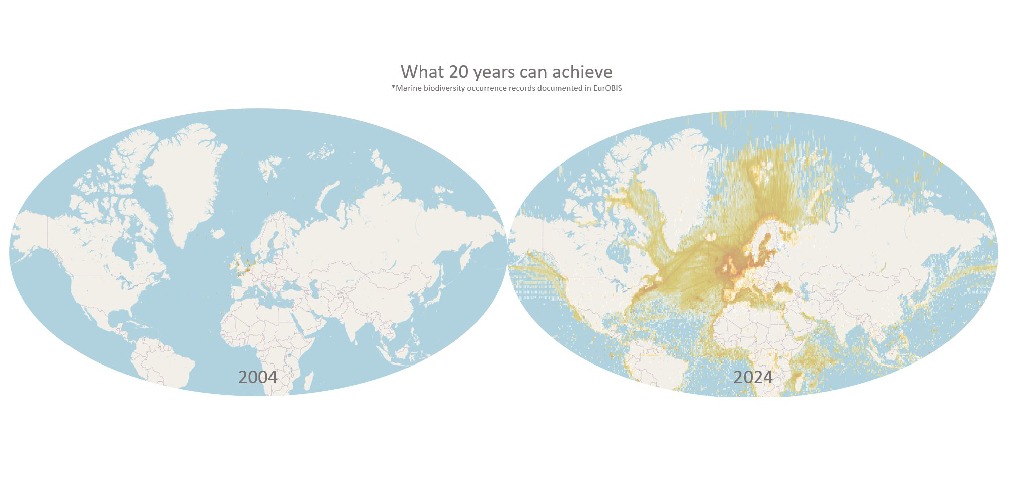
In this update, you can see a snapshot of the most exciting news from LifeWatch Belgium this season. From anniversaries to new scientific milestones, here are the stories you don’t want to miss:
- 20 years of EurOBIS: the European Ocean Biodiversity Information System (Eurobis), a LifeWatch Belgium service, celebrated its 20th anniversary in grand style, releasing a “super-harvest” of marine biodiversity data. The system counts over 100 datasets, of which 87 new ones, for a total increase of more than 1 million marine species occurrence records that were made available. This follows its 15th-anniversary milestone, and since then, EurOBIS has nearly doubled its collection.
- The World Register of Marine Species (WoRMS), hosted within LifeWatch Belgium by the Flanders Marine Institute (VLIZ), marked its 15th anniversary only two years ago. This autumn, it celebrates the milestone with the release of an opinion paper titled The World Register of Marine Species (WoRMS) through the looking glass: insights from the Data Management Team in light of the crystal anniversary of WoRMS. The paper reflects on WoRMS’ role in global biodiversity data management and highlights the importance of sustained collaboration for improving species data accessibility. It also offers updates on marine species discovery rates, insights into the editorial board’s daily activities, and progress on content priorities laid out by the WoRMS Steering Committee as part of the UN Ocean Decade.
- The Ocean Census programme sets an impressive target of 100,000 new species: with the aim of revolutionising marine biodiversity research, the initiative will feed the WoRMS database contributing to marine conservation efforts. Marine biologists estimate that there are potentially between one and two million marine species that inhabit our oceans, but only around 246,500 have been described to date. Although discovering these new species will be challenging—particularly in the more inhospitable areas of the ocean—scientists believe these regions hold the greatest potential for new discoveries.
LifeWatch Belgium is one of the national nodes in LifeWatch ERIC, and it plays a critical role in developing and operating various essential infrastructure components, including i) a species information backbone as a central European resource, ii) a regional observatory for marine, freshwater, and terrestrial ecosystems, and iii) a facility for habitat mapping using remote sensing.
These achievements are important examples of LifeWatch Belgium’s support to advancing biodiversity science and better understanding and preserving biodiversity.
For more detailed stories, visit LifeWatch Belgium’s news page.